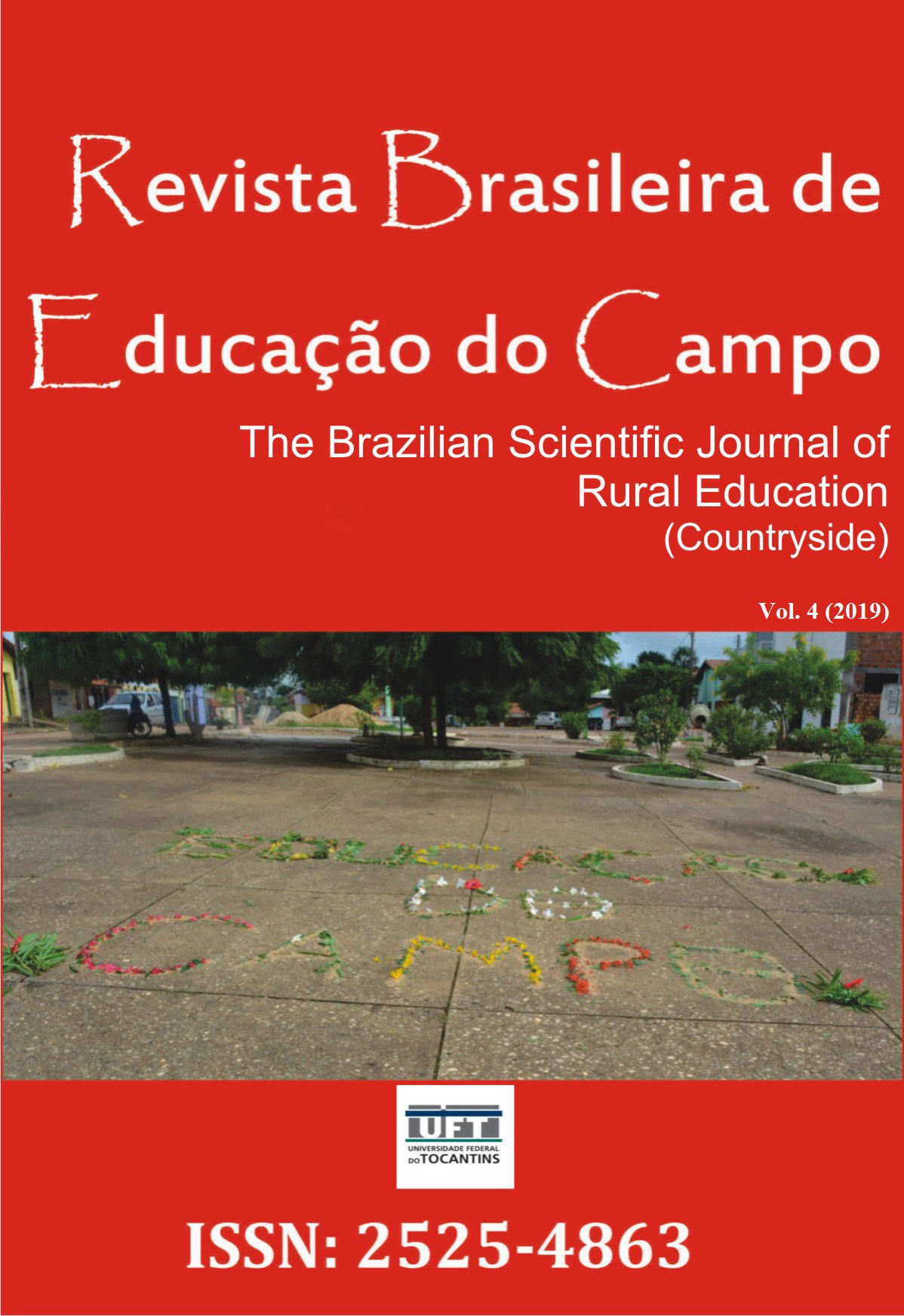Land tenure legislation and countryside education in Brazil
DOI :
https://doi.org/10.20873/uft.rbec.v4e6406Mots-clés :
Federal Constitutions, Social Movements, Fighting, Countryside EducationRésumé
Este artigo objetiva refletir acerca de duas grandes questões que envolvem os campesinos e que se constituem como “bandeiras” fundamentais: a primeira é a questão da terra, a segunda é a educação do campo. Toma-se, inicialmente, como objeto de análise as Constituições Federais Brasileiras por entender que tais compõem as visões historicamente construídas acerca do campesino brasileiro, para em seguida iniciar reflexões acerca das propostas da Educação do Campo. Tais reflexões evidenciam as relações entre a construção do que, neste artigo, se denomina como “invisibilidade” das populações campesinas e a constituição de um movimento em prol de uma educação que considere suas especificidades. Tais lutas em relação à constituição de uma educação de qualidade para os sujeitos campesinos vêm garantindo algumas conquistas de modo a torná-los visíveis, em detrimento de uma visão hegemônica que tende a torná-los uma massa amorfa, desconsiderando suas especificidades e saberes.
Palavras-chave: Constituições Federais, Movimentos Sociais, Luta, Educação do Campo.
Land tenure legislation and countryside education in Brazil
ABSTRACT. This paper aims at reflecting about two great questions concerning rural population; such questions constitute themselves as fundamental fighting pillars: land, and countryside education. Firstly, Brazil’s Federal Constitution is taken under analyses, since it represents the official view towards rural population, secondly, reflections are drawn regarding what is suggested concerning Countryside Education. These reflections highlight the relationship between, what is here denominated as “invisibility” regarding rural population, and a movement towards an education that takes under consideration its specificities. The battles for better education for rural communities has guaranteed some achievements, thus making them visible, in detriment of a hegemonic view, which tends to take rural populations as part of a whole, disregarding their specificities and traditional knowledge.
Keywords: Federal Constitutions, Social Movements, Fighting, Countryside Education.
Legislación sobre tenencia de tierras y Educación del Campo en Brasil
RESUMEN. Este trabajo tiene el objetivo de reflexionar acerca de dos grandes cuestiones que involucran a los campesinos y que se constituyen como banderas fundamentales: la primera es la cuestión de la tierra, la segunda es la educación del campo. Se toma inicialmente como objeto de análisis las Constituciones Federales Brasileñas por entender que tales componen las visiones históricamente construidas acerca del campesino brasileño, para luego iniciar reflexiones acerca de las propuestas de la Educación del Campo. Tales reflexiones evidencian las relaciones entre la construcción de lo que en este artículo se denomina invisibilidad de las poblaciones campesinas y la constitución de un movimiento en favor de una educación que considere sus especificidades. Tales luchas con relación a la constitución de una educación de calidad para los sujetos campesinos vienen garantizando algunas conquistas para hacerlos visibles, en detrimento de una visión hegemónica que tiende a hacerlos como parte del todo, desconsiderando sus especificidades y saberes.
Palabras clave: Constituciones Federales, Movimientos Sociales, Lucha, Educación del Campo.
Téléchargements
Téléchargements
Publié-e
Comment citer
Numéro
Rubrique
Licence
Proposal for Copyright Notice Creative Commons
1. Policy Proposal to Open Access Journals
Authors who publish with this journal agree to the following terms:
A. Authors retain copyright and grant the journal right of first publication with the work simultaneously licensed under the Creative Commons Attribution License that allows sharing the work with recognition of its initial publication in this journal.
B. Authors are able to take on additional contracts separately, non-exclusive distribution of the version of the paper published in this journal (ex .: publish in institutional repository or as a book), with an acknowledgment of its initial publication in this journal.
C. Authors are permitted and encouraged to post their work online (eg .: in institutional repositories or on their website) at any point before or during the editorial process, as it can lead to productive exchanges, as well as increase the impact and the citation of published work (See the Effect of Open Access).














